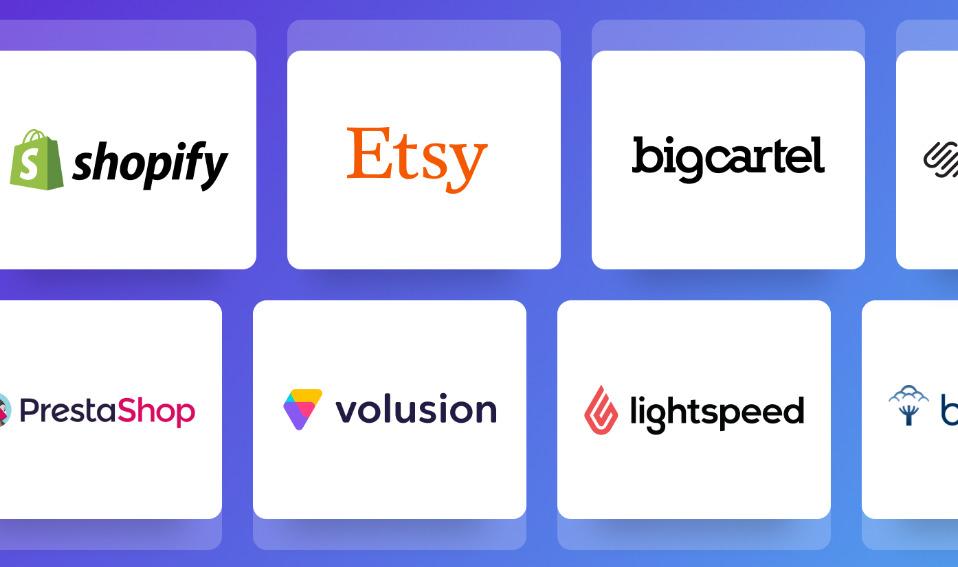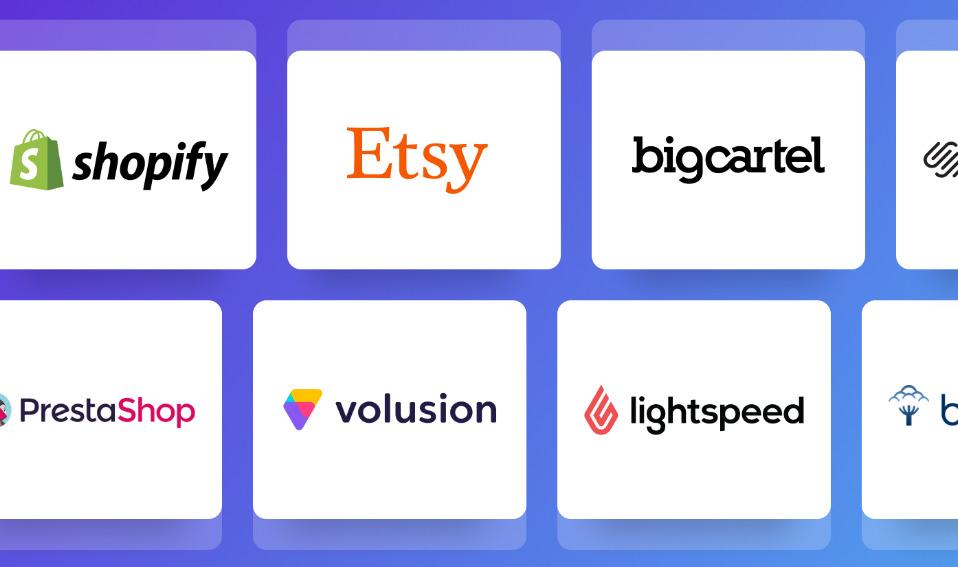The 12 Best Headless Ecommerce Platforms In 2023

Ecommerce is increasingly the preferred way of shopping, constituting approximately 19 percent of retail sales globally in 2022. And the figure is expected to grow to nearly a quarter of total worldwide retail sales.
Yet, not any ecommerce solution sits well with consumers. 80% of customers want their retail vendors to deliver personalized experiences. The limited customization of monolithic solutions means you won’t achieve such personalization with a traditional ecommerce store.
Thankfully, the ecommerce market is teeming with adaptive headless solutions that will make customizing your customer experiences a breeze.
In this article, we look at the 12 best headless ecommerce platforms you should consider to take your business to the next level in 2023.
What to Look for in a Headless Commerce Platform
Before we present the best headless ecommerce platforms, here is an overview of what the solution must have to qualify as the best.
A neat user interface.
The user interface must be clutter-free to avoid a steep learning curve.
A knowledge base.
The best headless ecommerce solution will include easily accessible tutorials to make learning easy.
Handy integrations with other tools.
The platform should easily connect with tools you use frequently, such as product information management (PIM) and customer relationship management (CRM) tools.
A customizable design.
Customization is inherent to headless commerce, as it allows you to personalize customer experiences.
Responsive and dedicated customer support.
Stellar, 24/7 customer support via phone, live chat, and email will ensure that problems are addressed as soon as something goes wrong to avoid losing business.
The Best Headless Commerce Platforms Today
Now that we know what to look for in a headless platform, here are the headless ecommerce solutions that made it to our shortlist.
Adobe Commerce (Magento)—Ideal for enterprises with plenty of customization needs
You are probably familiar with the term Magento. This ecommerce platform is now known as Adobe Commerce.
The headless ecommerce platform is enterprise-grade and offers the best customization features among its peers. Accordingly, this characteristic makes Magento Enterprise the best choice for modern, growing businesses with many customization needs.
Large enterprises serve many customers with a wide range of demographics, meaning a one-size-fits-all approach won’t cut it.
Adobe Commerce is popular for its incredible versatility, flexibility, and scalability, allowing developers to integrate the shopping cart seamlessly with any front end. Additionally, thanks to its support for custom API, it can deliver the best omnichannel customer experiences.
The platform comes with a powerful Magento 2 REST API built in. It also supports both SOAP and GraphQL APIs.
Any of these API frameworks allows you to create CRM, CMS, PIM, ERP, accounting, marketing, and custom inventory management integrations.
And it has a dedicated user guide to walk you through the entire process.
Shopify—Most reliable and scalable ecommerce platform

Shopify is the biggest ecommerce software in the US, powering at least 28 percent of all online stores available.
It is easy to understand why: the platform boasts the best stability and security, making it the go-to option for medium and large ecommerce businesses looking to scale.
Thanks to its GraphQL and REST APIs, you can easily build your custom headless storefront on the Hydrogen framework introduced through Shopify Plus.
Furthermore, the framework is developer-friendly and works conveniently with the company’s hosting platform, Oxygen, to deploy fast-scaling headless storefronts.
Supported integrations
Shopify Plus supports integrations with several systems, including your CRM, CMS, ERP, and PIM, as well as third-party marketplaces like Amazon and eBay. Additionally, it helps your business run better with leading apps for Apple Business Chat, Mailchimp, Google Sheets, Slack, and more.
Salesforce Commerce Cloud—Best for unified B2C and B2B ecommerce experience
You guessed it: Salesforce Commerce Cloud is a headless solution by Salesforce CRM Company.
If you were familiar with Salesforce products before, you might have known the Salesforce Commerce Cloud as CloudCraze and Demandware in the B2B and B2C sectors, respectively.
The ecommerce platform allows seamless CRM integration and integrations with various augmented reality systems and marketplaces. Additionally, it provides best-in-class security features and enhanced scalability.
With Salesforce Commerce Cloud, you can unify all your data and provide your entire customer base with personalized, omnichannel experiences. This can significantly drive up your revenue across multiple channels.
BigCommerce—Best for enterprises with high-volume sales
BigCommerce is a highly flexible and scalable ecommerce solution with a high-performing backend that supports the creation of headless ecommerce stores.
It has an Open API architecture that enables seamless integrations with popular front-end frameworks like Next.js, Nuxt.js, and Gatsby.js.
Furthermore, you can integrate it with CMS platforms like WordPress and Adobe Experience Manager and marketplaces like eBay and Amazon for a unified experience.
BigCommerce boasts the highest number of built-in sales tools of all platforms in its range. Add these tools to its incredible multi-channel integration and advanced SEO (search engine optimization), and you have the best enterprise-grade headless solution for scaling businesses.
Additionally, you should be delighted to know that BigCommerce does not throttle API calls, making it ideal for high-volume sales.
Elastic Path–Best for dynamic catalog collection and management
Elastic Path is a simple headless ecommerce platform built on Apache and Java and boasts a high rate of API response.
Thanks to its flexibility, you can rely on it to deliver satisfactory shopping experiences consistent across multiple touchpoints.
It is highly scalable, making it ideal for growth-oriented mid-size and enterprise-level businesses.
This solution works with REST API.
Commercetools—Best for scalability
For a business looking to embrace future innovation and adapt quickly to challenges, Commerctools is an ideal solution.
It is powered by MySQL and PHP and built on a unique architecture known as MACH (microservices, API-first, cloud-native, headless approach).
MACH Platforms like Commerctools have a modular e-commerce structure that excels in helping businesses respond more readily to customer needs.
Additionally, the platform’s API-first architecture means it is composable, and the best choice if you have an agile B2C or B2B business with plenty of customization needs.
It comes with numerous inventory management features designed for all sizes of stores. Furthermore, you can integrate your Commercetools with Frontstatic, Cybersource, and Contentstack for front-end development, payment management, and content management, respectively.
The platform also supports integration with front-end content management systems like Adobe Experience Cloud.
OroCommerce—Best for B2B enterprises with complex needs
Our very first recommendation was Magento, currently known as Adobe Commerce. And guess what Magento has in common with OroCommerce: they were both created by the same minds.
However, the primary difference is that, unlike Adobe Commerce, OroCommerce is designed primarily to suit the needs of wholesalers. Specifically, the platform is optimized to support complex needs such as custom catalogs, multiple pricing levels, and unique integrations.
Its Open API support makes it easy to integrate with any third-party service or tool to deliver remarkable experiences.
Because the platform has advanced customization, you can use it for businesses outside the B2B industry.
Its inventory management system allows businesses to run multiple warehouses and websites, manage product catalogs, and amend prices simultaneously.
You can use its built-in CRM or integrate it with an existing CRM, thanks to its easy integration with many ERP solutions and CRM applications.
Snipcart—Best integration with existing websites
Snipcart is the best ecommerce solution for aspiring ecommerce businesses with established websites. Its JS/ HTML-based architecture seamlessly turns any site into a headless ecommerce store.
With Snipcart, you can easily deliver omnichannel experiences by plugging it into any other headless CMS platform.
Additionally, it allows you to tweak the APIs and CSS to customize its shopping cart functionality.
You should be happy to know the solution supports REST, JavaScript, and Webhooks, allowing you to choose your preferred integrations.
Spryker—Best cloud-enabled option
Spryker is a B2B and B2C ecommerce platform-as-a-service solution that uses over 900 API modules. Significantly, the service is cloud-based, allowing enterprise-level companies to scale without being restricted by technical limits.
Developers can build online stores with Spryker from scratch. The expert guidance available with the service throughout its lifecycle further simplifies and streamlines the building of ecommerce stores on Spryker.
Spryker offers a headless experience through its GLUE API, which allows users to integrate large legacy platforms and smart devices.
Commerce Layer—Best for beginners
Commerce Layer is a headless commerce platform designed for easy use. Specifically, the platform comes with production-ready micro front-ends that allow beginners to get started in a plug-and-play approach.
Additionally, it has a full suite of APIs, dev tools, and webhooks to allow users to scale globally. You can add global shopping services to mobile apps, websites, chatbots, and IoT devices without necessarily having extensive development knowledge.
Commerce Layer doubles as an order management system and is suited to small stores and big enterprise companies alike.
Its composable architecture means that you can integrate the platform with any third-party service. It guarantees the best uptime and uses more than 300 API endpoints to allow for limitless front-end support.
FoxyCart Enterprise—Best simplified and fully customizable option
FoxyCart is an ecommerce platform built with easy customization in mind. Correspondingly, it is fully customizable and allows web designers and developers to create powerful online shopping carts that are easy to use.
It is a simplified headless ecommerce solution that effectively solves the complexity problem associated with headless ecommerce platforms.
Despite its simplicity, FoxyCart has powerful features that guarantee an easier, faster, and friendly way to sell products online.
It works with a powerful RESTful API to provide headless experiences.
Swell—Best for future-proofing businesses
Swell is a highly customizable API-first ecommerce platform that utilizes modern development tools and technologies to future-proof businesses.
It is designed for businesses of all sizes, with an intuitive central dashboard, making it easy to use. Specifically, the central dashboard allows you to manage product options with simple clicks without coding or using plugins.
Swell offers several integration options, including PayPal, Stripe, Braintree, Slack, Zapier, Algolia, ShipStation, and Mailchimp integrations.
What Is The Best Headless Ecommerce Platform In 2023?

Adobe Commerce (Magento) and Shopify are excellent headless ecommerce solutions that could share the first position in a head-to-head match of approval. However, Shopify remains the biggest name in the headless ecommerce software world, claiming the biggest slot in the US.
That said, all twelve ecommerce platforms are great, with each excelling in at least one area above the rest, as we have indicated by the modifiers.
In our forthcoming posts, we will dissect the headless ecommerce topic more deeply and discuss the best use cases for specific headless ecommerce solutions like Shopify and Magento.
We hope this discussion makes it easier for you to choose the best headless ecommerce platform for your online store. Still, the headless ecommerce experts at Endertech are at your disposal should you need one to point you in the right direction.
